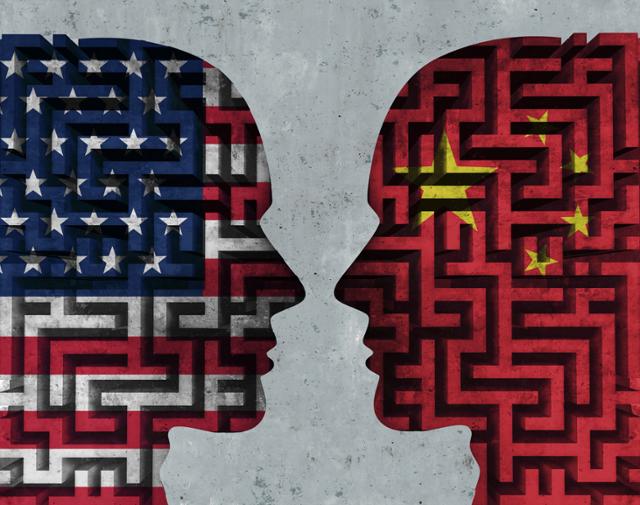
US and China: Why the More They Meet, the Less They’re Able To Communicate
(South Korea) on 3 August 2021
by Seong-Hyun Lee (link to original)
In view of this, some have criticized the U.S.-China relationship as harsh in words, compromise in reality. This reflects how the 20th century viewed the luxury of U.S.-China relations, which is described by the fact that even though relations are at a standstill, if they fight, they will both suffer, and so eventually, they reach a compromise.
The reason this observation of inertia cannot be ignored is that U.S. diplomatic officials themselves still speak that way. They explain that the U.S.-China relationship has all three features of competition, cooperation and hostility.
But diplomatic strategy is like investing in stocks. Like stock prices, the strategies reflect the future. Also, there is a high probability of failure if you just listen to other people. It should be noted that the current axis of U.S.-China relations has clearly tilted sharply toward competition rather than cooperation between governments, and hostility has shaped the mainstream discourse in the U.S. private sector. Countries betting on U.S.-China relations will have to look closely at this.
It is fortunate that the U.S. and China are still in contact, but the bigger problem is that they are not communicating even when they meet. Preferably, the more they meet, the more they should get along, but instead, each meeting has become a place to show how different they are.
The essential reason for this is that the U.S. will not accept China’s demands for a new era, calling on the U.S. to adapt to a stronger China based on its growing national power. The abstract term “new era” that Xi included in the Communist Party constitution stipulates a national policy change in the status quo of international relations centered around the U.S. Now, Xi is calling for an equal relationship and for leveling the playing field of U.S.-China relations, saying that China has already seen how the world can be flat.
China’s Vice Minister of Foreign Affairs Le Yucheng expressed this more directly. "The United States has declared its comeback, but the world has changed," he said, arguing that the United States should "adapt" to these changes. In a big way, it is also in line with a statement in a recent controversial opinion piece by Chinese Ambassador to South Korea Xing Haiming, who said that "one must follow the trends of the world to thrive."
It is likely that U.S. and China leaders will meet at the Group of 20 summit of industrial and emerging-market nations in Italy in October, but it is difficult to narrow the gap between the U.S. and China when it comes to fundamental competition for hegemony over the world order. This is because the current competitive confrontation between the U.S. and China is not just about economic interests such as trade wars, but has also gone beyond the confrontation between political systems and ideologies and has expanded to even more fundamental values and world views. Evaluating this thoroughly, we cannot find any reason to change the current thinking that future U.S.-China contacts and negotiations will not reach agreement easily.
